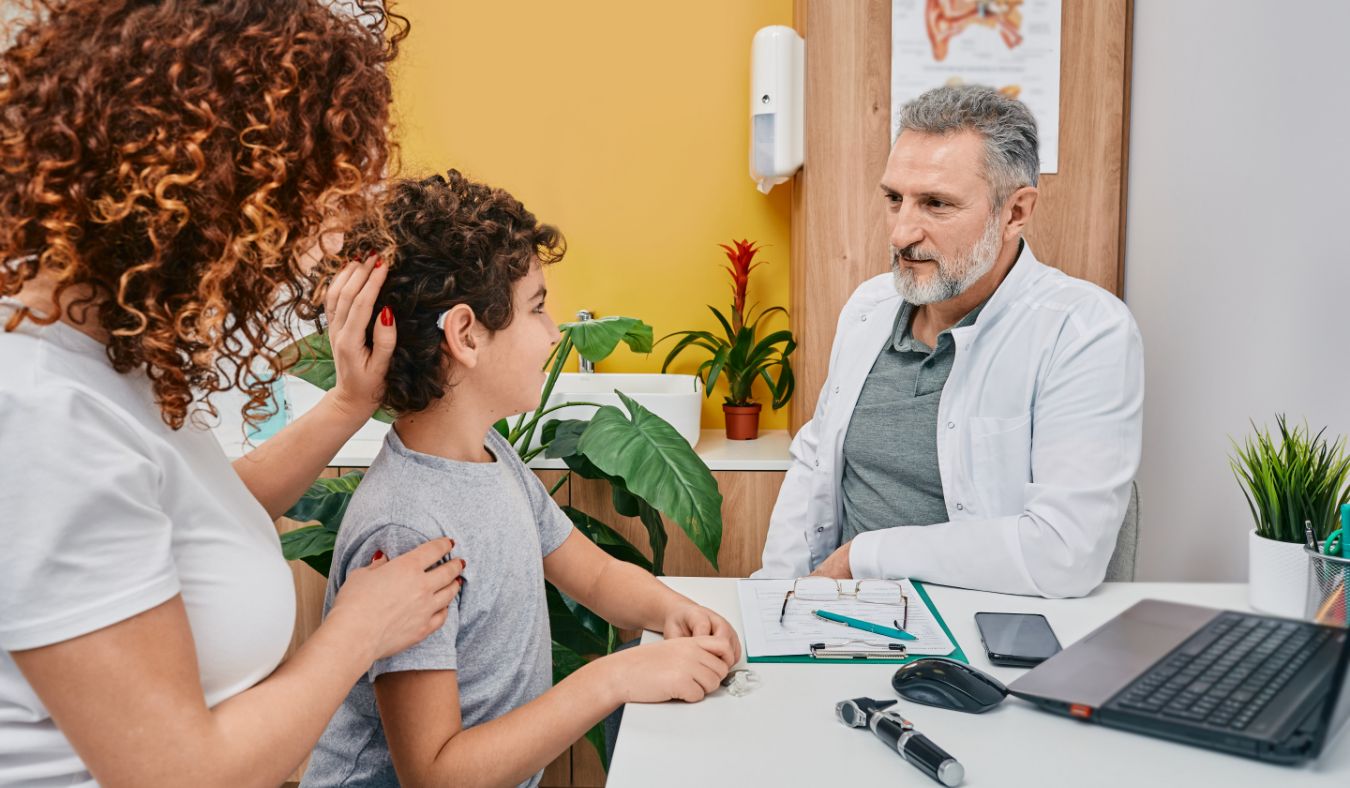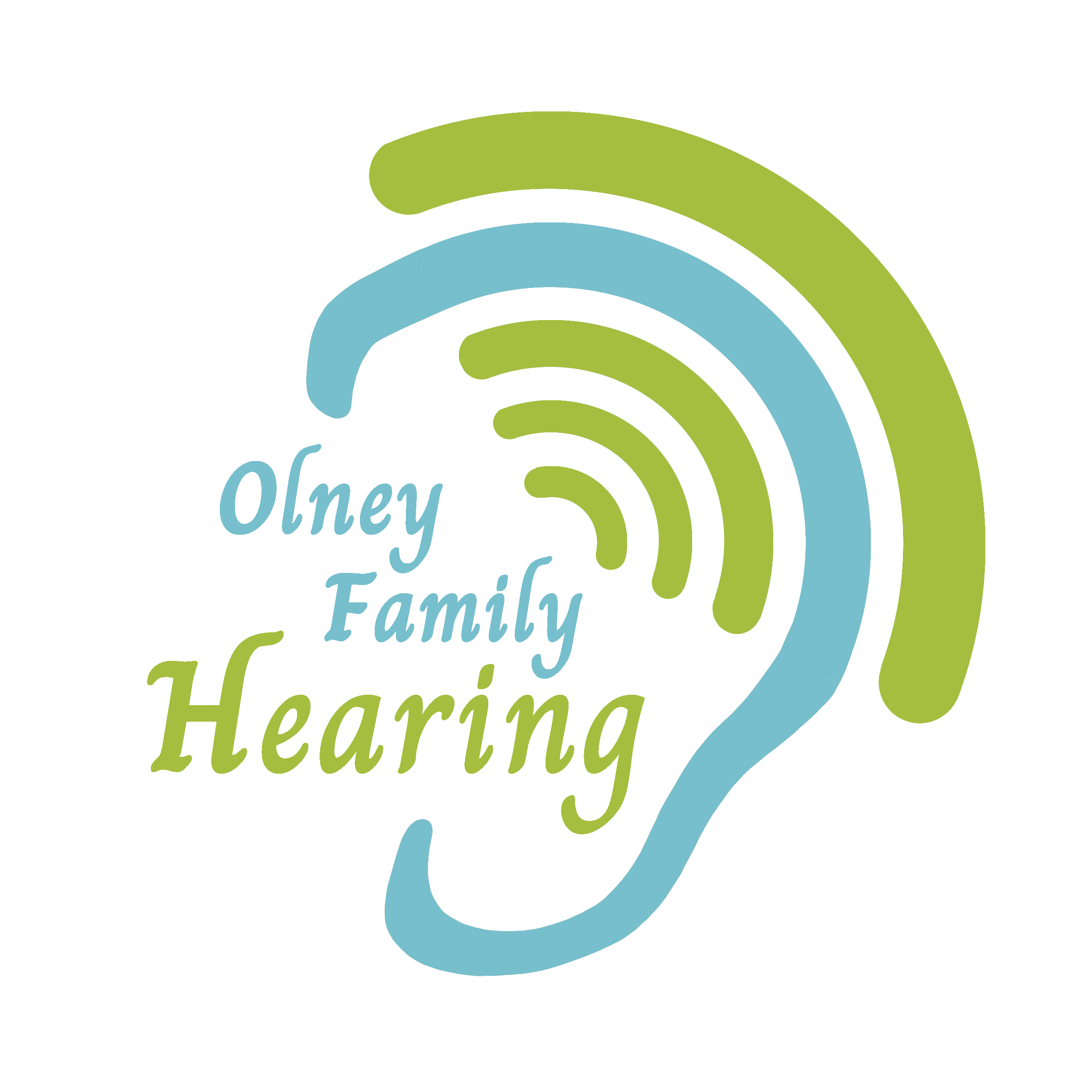How to Stay Positive After a Hearing Loss Diagnosis
Adjusting to a hearing loss diagnosis can feel challenging, both

By: admin | August 12, 2025
Many teens and young adults often assume that hearing loss is something they’ll only need to think about much later in life. However, younger people today are facing new risks, and hearing issues can begin earlier than most expect. With regular use of earbuds, gaming headsets and constant access to music and media, many are exposed to loud sounds for long periods of time. Listening at high volumes – whether during a game or while streaming music – can gradually harm hearing without immediate symptoms. Because the damage builds slowly, early signs of hearing loss can be hard to notice until they start to interfere with everyday life. So, what are the early sings of hearing loss?
Hearing loss involves more than just missing certain sounds or struggling to follow conversations in noisy places. It can affect everyday life, including how we communicate with others and how well we function at work or in school. There are several reasons someone might experience hearing loss. One common cause is aging, which can gradually wear down the tiny hair cells in the inner ear that are essential for hearing. Another cause is long-term exposure to loud sounds, which can also damage these cells over time and lead to permanent hearing changes. It’s important to note that not all hearing loss is the same. They vary in degree and type. Sensorineural hearing loss, the most common type, is often caused by damage to the inner ear or nerve pathways from the inner ear to the brain.
Hearing loss is becoming more common in teens and young adults, and much of it is linked to regular use of personal audio devices. Many people use headphones or earbuds for long periods, often at high volume. This kind of exposure can slowly damage the hair cells in the inner ear that are necessary for hearing. The damage usually doesn’t cause immediate symptoms, which makes it easy to ignore. However, over time, it can lead to permanent hearing problems that can’t be reversed.
In addition to headphones, loud environments contribute to the issue. Events like concerts and sporting games often reach sound levels that are harmful after a short amount of time. Even occasional exposure to power tools, motorcycles or fireworks can have lasting effects, especially without proper hearing protection. These situations may not seem like a concern in the moment, but the impact of repeated loud noise adds up.
A lack of awareness is another reason hearing loss continues to affect younger people. Many don’t take steps to protect their ears simply because they don’t realize there’s a risk. Basic actions – like turning down the volume, limiting listening time or using earplugs in loud places – can help reduce long-term damage. Without those habits, hearing problems may begin earlier than expected and become more noticeable with time.
Noise exposure plays a significant role in early onset hearing loss. Continuous exposure to loud sounds can damage the delicate structures within our ears, leading to early hearing loss. In fact, constant exposure to high decibel levels is one of the leading causes of hearing loss in young adults and teens. It’s important for everyone, regardless of age, to understand this risk and take steps to protect their hearing health.
Recognizing the symptoms of hearing loss in young adults and teens is crucial for early intervention. Some signs might include frequently asking others to repeat themselves, having difficulty following conversations when there’s background noise or consistently turning up the volume on devices like TVs or headphones. Here are some common symptoms to watch out for:
If you notice any of these symptoms in yourself or a loved one, it’s important to seek advice from an audiologist right away. They can help identify any potential issues and guide you through the next steps towards better hearing health.
Ignoring hearing loss can lead to more than just trouble hearing certain sounds. Over time, it can affect how well your brain processes speech and other everyday noises. When the brain doesn’t get regular sound input, it starts to lose its ability to understand spoken words clearly, even if the volume is later increased. This can make conversations harder to follow, especially in group settings or noisy places. The longer hearing loss goes untreated, the harder it can be to adjust to hearing aids or other treatments down the line.
There are also social and emotional effects to consider. People with untreated hearing loss may begin to avoid conversations or social gatherings because it becomes too difficult to keep up. This can lead to feelings of isolation or frustration, and in some cases, it may even affect performance at work or school. While hearing loss might seem like something that can be put off, early attention can prevent further problems and make it easier to manage daily communication.
A hearing assessment typically involves a series of tests conducted by a qualified professional. These tests are non-invasive and painless, aiming to evaluate different aspects of your hearing. Firstly, you’ll have a conversation with your audiologist about your medical history and any concerns or symptoms you’ve been experiencing. Then, they will examine your ears using an otoscope – this allows them to check for any physical abnormalities that might be affecting your hearing. Next comes the audiometry test where you’ll listen to a range of sounds at different frequencies and volumes through headphones. Your responses help determine the quietest sounds you can hear at each frequency tested, painting a picture of how well both ears are functioning. If necessary, further tests may be carried out based on these initial findings.
This whole process is aimed at providing valuable information about your hearing health to determine the extent and what treatment options may be best for you.
Treating hearing loss in teens and young adults often begins with a hearing test to measure how much hearing has been affected. If the loss is due to noise exposure, hearing aids may be recommended to improve clarity and make communication easier. These devices can be adjusted to match a person’s specific hearing needs. In some cases, assistive technology like amplifiers or speech-to-text apps can also be helpful in everyday situations. T
Prevention plays an important role in protecting long-term hearing health. One of the simplest ways to reduce risk is by keeping the volume at safe levels when using headphones or earbuds. It’s also smart to wear ear protection in loud settings like concerts or sporting events. There are several types of hearing protection an audiologist can help you choose from like earplugs, earmuffs and noise-canceling headphones. Even small changes, like taking listening breaks or choosing quieter environments, can lower the chances of permanent damage. These habits may seem minor, but they can make a real difference over time.
Another important step in prevention is raising awareness about how everyday choices impact hearing. Many young people aren’t fully aware of how long-term noise exposure can affect their hearing until problems begin. Encouraging regular hearing checkups and making ear protection more accessible are practical ways to address this. Schools, families and audiologists can help by starting conversations early and offering useful tips. Taking a few precautions now can help avoid more serious issues later.
It can be difficult to recognize when hearing loss is becoming an issue, especially for teens and young adults. Small changes like raising the volume more often or missing parts of conversations are easy to overlook. These issues are sometimes blamed on distractions or background noise, but if they keep happening, it may be time to speak with an audiologist. Waiting too long can make the problem harder to manage later on. Keeping track of how often these situations occur can help determine whether a hearing evaluation is necessary.
Seeing an audiologist doesn’t always mean there’s a serious issue. A hearing test can identify whether there is any hearing loss and, if so, how much. Some problems, like earwax buildup or minor infections, may be temporary and an audiologist can provide the right treatment. In other cases, early hearing changes could point to something more lasting. Getting a clear answer early on makes it easier to find the right approach and avoid further damage.
It’s also worth paying attention if hearing challenges begin to interfere with everyday tasks. Struggling to keep up in class, avoiding conversations or feeling frustrated during group discussions may point to a deeper issue. These kinds of difficulties can gradually affect school, work or social life. Addressing the problem early can help prevent it from getting worse. Early intervention is key when it comes to managing potential hearing issues effectively. Don’t wait until the problem becomes too significant before seeking help – reach out to a qualified professional at the first sign of trouble. They will guide you through testing procedures and discuss potential treatment options suitable for your specific needs and be able to answer any questions you may have about your hearing loss.
The process of understanding and managing hearing loss in young adults and teens starts with awareness. Early detection is vital in preventing and protecting your hearing. The first step is recognizing the signs and seeking professional advice promptly. This proactive approach ensures you’re better equipped to handle potential hearing issues effectively, maintaining your quality of life.
If you’ve noticed any of these symptoms in yourself or a loved one, don’t hesitate to take action. At Olney Family Hearing, we are here to support you every step of the way. We have a dedicated team of audiologists who can guide you through testing procedures and discuss potential treatment options suitable for your specific needs.
To schedule an appointment at our hearing clinic in Olney, MD, call us today at (240) 599-4918.
It’s always a good time to start paying attention to your hearing health. Clear communication is important in everyday life, and untreated hearing issues can make that more difficult over time. Taking action now can help to prevent hearing loss from getting worse. Getting the right support early can make a difference.
Tags: hearing care services, pediatric hearing loss, symptoms of hearing loss

Adjusting to a hearing loss diagnosis can feel challenging, both
By: admin | December 21, 2025

Many teens and young adults often assume that hearing loss is something
By: admin | August 12, 2025
